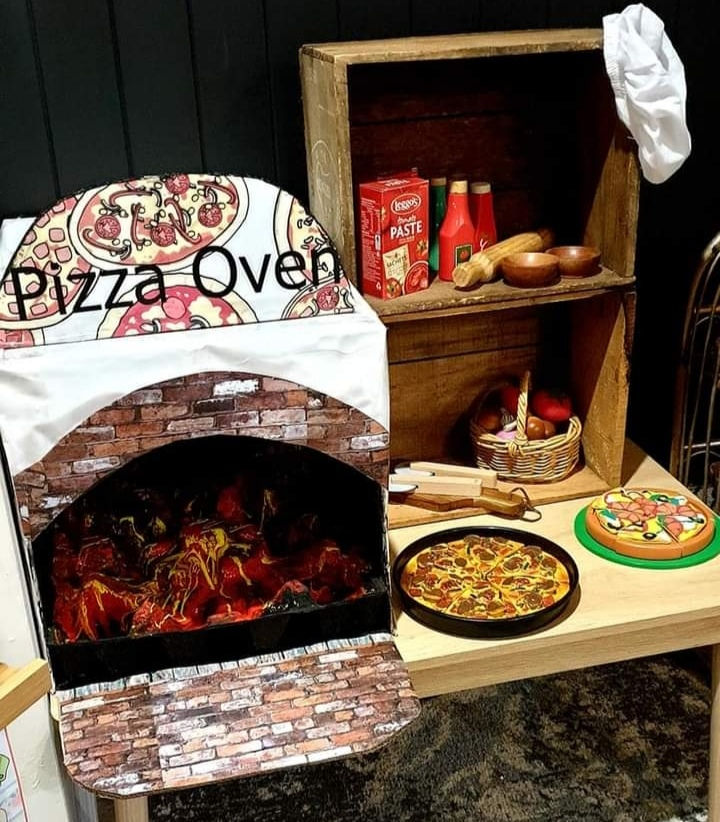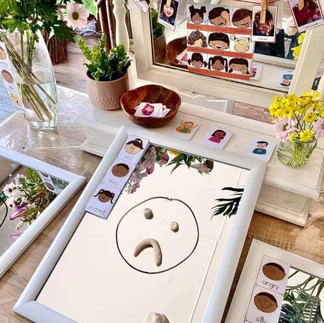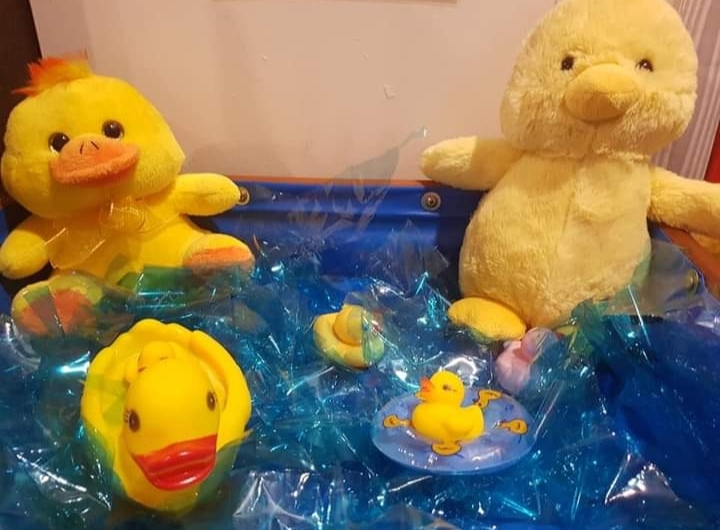How To Start With Play Based learning
- Early years Ideas
- Mar 12, 2022
- 8 min read
Updated: Jul 16, 2022
Are you interested in play based or inquiry learning but don’t know where to start?
In this blog post you will find out all the benefits of play based learning. You will also discover some practical play based learning examples you can use in your classroom and some tips on how you can easily get started with learning through play in your classroom today.

“Play based learning is a context for learning where children can explore, experiment, discover and solve problems in imaginative and playful ways.”
When I first started teaching (many years ago) play based learning in early years was the norm. Our early childhood classrooms were full of engaging hands-on and age-appropriate learning invitations. It was a play based curriculum and was very much child led. Our daily observations informed our planning and our reporting.
Back in the good old days, children were never given a graded report card. A child could not fail preschool. Teachers simply reported their observations and each child’s developmental milestones were accepted and celebrated.
As with most things in our education system, it seems to have gone full circle and play based learning seems to be gaining some momentum – thank goodness!

There is plenty of research around play-based learning and how it enhances children’s academic and developmental learning outcomes. In fact, the current research has found play based and inquiry learning is vital if you want to set children up for success in both their future schooling and in their later adult life.
Skills Every Child Will Need to Succeed in 21st century | Dr. Laura A. Jana | TEDxChandigarh
What is Play Based Learning?
Have you heard that play is the work of the child? Play is not only fun but it has behavioural, social, and psychomotor rewards too. Play is how children learn about their world. Play and learning go hand-in-hand.
But what exactly is play based learning?
As we all need to meet curriculum standards and benchmarks, play based learning in the classroom cannot just be a free for all type of play. Effective play based learning needs to be thoughtfully planned for and facilitated by the teacher.
Play based learning is a context for learning where children can explore, experiment, discover and solve problems in imaginative and playful ways.
It is not just a free for all where children do whatever they like all day. An effective play-based learning approach requires both child-led and teacher-designed learning opportunities.
The teacher supports children’s development by providing investigative learning invitations which aim to foster personalised cognitive and social/emotional growth.
For example, when children are playing with blocks, you can ask questions which encourage problem solving and mathematical skills and concepts. You could add some paper and pens to the blocks so your children will be prompted to draw and write and develop literacy skills.
The resources offered in a play based learning environment have an influence over the type of learning which happens there. Most play based pedagogies suggest the resources you offer should be open ended in nature. You can read more about how to create and resource educational play environments here:
BLOG POST - Environment as the third teacher. If you are interested in transforming your learning environment into a play based space, read this blog post for tips and ideas on how you can do it.

BLOG POST - Loose parts resources Discover what the best play based learning resources are and why you need them in your classroom in this blog post. You can also download a FREE list of over 150 open ended resources so you can set up age appropriate investigation areas and learning invitations in your early years setting.
Why is Play Based Learning Important?
I’m sure you have heard that children learn through play. Have you heard that children learn BEST through play? No doubt you know play comes naturally to children and that it is highly engaging but is it really the best way for children to learn?
There are many benefits to play based learning. You should definitely be including this highly engaging and extremely effective form of learning in your school day.
Just like traditional approaches, play-based learning is focused on teaching and learning. Your curriculum goals and benchmarks will still be reached. In fact, the mandated curriculum PLUS so much more can easily be covered.
Through a play based pedagogy, you can personalise and differentiate the learning. You will be able to build on your children’s interests and developmental needs and levels.
If you adopt a play based learning pedagogy, your children will engage in types of play that reflect their level of cognitive development. Every child will be met with learning opportunities that suit their individual developmental needs.
Engagement is increased in a play based pedagogy. Play based learning uses a child’s natural curiosity for exploration and discovery. Your children will be highly engaged because their learning experiences become purposeful.
Your children will feel successful and see themselves as learners in a play based learning environment. There is no right or wrong way to learn and work so your children will have no sense of failure.

As each cohort is so different, you will no doubt have children in your class working below and above your curriculum expectations. You can easily cater for each individual child through play based learning. There is no sense of failure because everyone is working at their developmental level.
Skilled play based teachers are able to design learning environments and investigation areas which are linked to their curriculum learning intentions.
Play based investigation time is a chance for your children to explore, revise and practise the skills they have learned in your explicit teaching lessons.
Play based learning not only provides a chance for your children to learn and practice the mandated academic curriculum learning intentions, but it is also a motivating force for your children to master their social and emotional learning too.
Through play based learning, your children will develop many social skills. Children are consistently communicating, cooperating, sharing and responding to ideas, negotiating, and resolving conflicts.
When children have the opportunity to learn through play, they will develop resilience and grow positive attitudes towards learning. Skills including imagination, curiosity, enthusiasm, and persistence will be practiced over and over.
As your children interact with the environment and the people and resources contained within it, the higher-level thinking skills which are essential for the 21st century will be practiced and learned too.
You will observe an increase in the ability of your children to focus and concentrate as they master the skills of creativity, problem solving, analysing, evaluating and applying their knowledge.
Another important benefit of a play based learning pedagogy is the amazing growth in oral language you will see. Play based learning research indicates the increased complexity of language and learning processes used by children in play-based programs is linked to important literacy skills. These include understanding the structure of words and the meanings of words.
You might like to check out this investigation into the effects of play-based instruction on the development of play skills and oral language. This study found children’s vocabulary and ability to tell a story was higher in a play-based classroom than a traditional classroom.
Of course, explicit teaching and direct instruction are still vitally important and very necessary in a play based classroom. It’s all about creating a balance and an integrated method of teaching. Your children will still need explicit teaching lessons.
The research suggests however, that the many benefits of a quality play-based pedagogy means you should definitely be including play based learning in a dedicated part of your school day.
Play based learning is a valuable pedagogy. It is NOT a Friday afternoon reward for good behaviour or an activity set up to occupy your early finishers or even an opportunity to keep your children busy while you administer one-on-one assessments or targeted teaching.
What Does a Typical School Day Look Like in a Play Based Classroom?
I love visiting other teachers’ classrooms and checking out the way they organise their school day. If you are interested in learning a little about a typical day in my play based classroom, read on…
Morning Session: We all meet on the carpet space for a class morning session or morning meeting. We discuss the calendar and the upcoming day’s timetable (although nowadays this is frowned upon by OFSTED) with a more intent on 'children's interest. So while I might be doing this with some of the children, the other children are free to choose what they want to do. The children are reminded of their class jobs, we mark the roll and add a counter to our 100 days of school record. Then we discuss the curriculum learning intentions for that school day. These learning intentions will be a focus in the play based learning time (investigations) and in our explicit teaching lessons later in the day through contininuous provision.
Tuning – In: After discussing the learning intentions, we talk to our focus children and finish our tuning-in session with a short discussion of our daily photographer and reporter tasks.
Investigations: Investigation time runs for at least 45 minutes. This is our play based learning time. We have a variety of play based learning activities or learning invitations and learning provocations already set up throughout our room. Most, if not all of the investigation areas and learning invitations are directly related to our curriculum learning intentions. You can discover how to set up a purposeful learning provocation here:3 Steps to Setting Up a Learning Provocation
Children choose where they plan to start working during the upcoming investigations session and what they will be working on.

Reflection and Re-set: At the end of our investigation time, I call all the children to meet on the carpet again. We don’t tidy up yet. We just get together to discuss the learning that has happened.
This is the perfect time for a short impromptu lesson reflecting something I have observed during the session that I feel would benefit the whole class. It might be a demonstration of a strategy I noticed a child using or a discussion around a social skill we are learning to master.
After our reflection, the children are given about 10 minutes to go back to the investigation areas and re-set them ready for investigations the next day.

So much learning happens in our school day and the tight schedule certainly helps our school days to be super productive. The day goes super quickly!!
How to Introduce Play Based Learning?
Now you know what play based learning is, how important it is for the children in your class and how I timetable 45 minutes of play into every one of our school days, you might be interested to discover how you can get started with play based learning and investigations in your classroom.
Here are a few tips and ideas so you can get started learning through play in your classroom today.
Routines and Procedures
Ideally you would want to start play based learning right at the beginning of the school year – yes! On the very first day of school!!
Of course, classroom routines and procedures should be the focus in those first few weeks of back to school. The routines and procedures of your play based investigation times are equally important.
To ensure your children meet behaviour expectations and get the most from their investigation sessions, it is very important your play based learning rules and procedures are crystal clear. Your children should understand their roles and what is expected of them.

Teacher Observations
The primary role of the teacher in any play based classroom is that of observer. During play based learning you can really get to know your children and what their interests and developmental needs are.
Take the opportunity to make observations of each child. Note who they are working with, what they are doing, where they choose to work and for how long. Make notes about possible future resources and learning invitations which will suit the individual needs of your children. Use your observations to inform your lesson planning and assessments.
Only Basic Resources – LESS IS MORE!
Start the year with simple, open ended learning invitations. Open ended resources (like loose parts) are always age appropriate. They are the best type of resource because every child, no matter their developmental level, can purposefully and successfully work with open ended materials.
You can find out all about these wonderful open ended resources and download a FREE list here on this blog post: Loose Parts Resources
Top Tip: Offer only a few resources at each investigation area. You want your investigations to be very quick and easy to reset. Use those first couple of weeks to observe the way the children interact with the resources and then use these observations to decide on which new resources you will offer.
As the year progresses, you will learn more and more about your children and about play based learning as a pedagogy. Your growing knowledge will be reflected in your learning invitations and you will notice them becoming increasingly more complex.
Let your children and your observations guide you.









































Comments